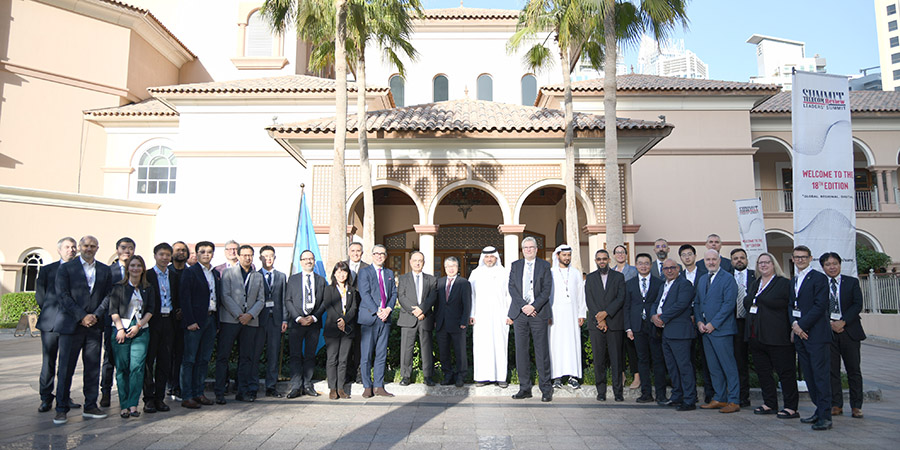Telecom Review hosted the high-profile ITU CxO meeting in collaboration with TDRA, du, and Huawei, for the 6th consecutive year in Dubai on December 9th, 2024, at the Ritz Carlton in Dubai.
In his opening speech, Seizo Onoe, Director of the Telecommunication Standardization Bureau at ITU, acknowledged the C-level participation, adding that such participation “influences the discussion.” He noted the significance of collaboration and expressed that he is “hopeful about the future” of international standards. Onoe also congratulated Toni Eid, Founder of Telecom Review and CEO of Trace Media International, for hosting its successful 6th consecutive ITU CxO meeting.
Eid expressed pride in Telecom Review's partnership with the ITU and the consistent support from TDRA, du, and Huawei in organizing this significant event. He noted that these collaborations play a key role in making the event possible. He also congratulated the Telecom Review team and other TRS esteemed partners for their respective contributions.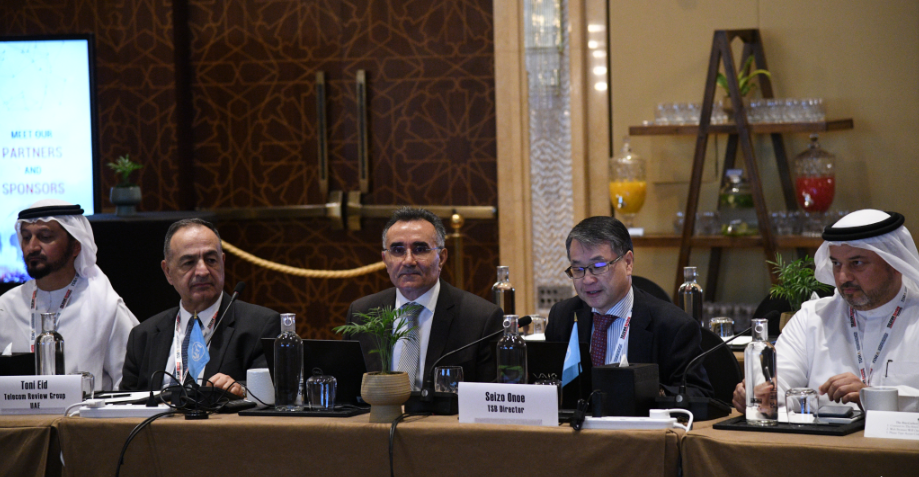
The Business Impact of Standards
Dr. Bilel Jamoussi, Deputy-Director at ITU, and Charlyne Restivo, Programme Coordinator at ITU, co-moderated a panel discussion titled ‘The Business Impact of Standards.’
The esteemed panelists in the session, included Eng. Saif Bin Ghelaita, Director Technology Development Affairs at TDRA; Saleem Alblooshi, Chief Technology Officer, du; Per Beming, Head of Standards and Industry Initiatives at Ericsson; and Xin Chang, Huawei's VP of Standardization and Industry Development.
The discussion focused on ICT standardization, business and regulatory perspectives, and other key priorities from vendors, solution providers, and operators who deploy telecom equipment and solutions. The panel aimed to gain insights from industry leaders on why they invest in standards and how these standards serve as a crucial tool in the ICT business.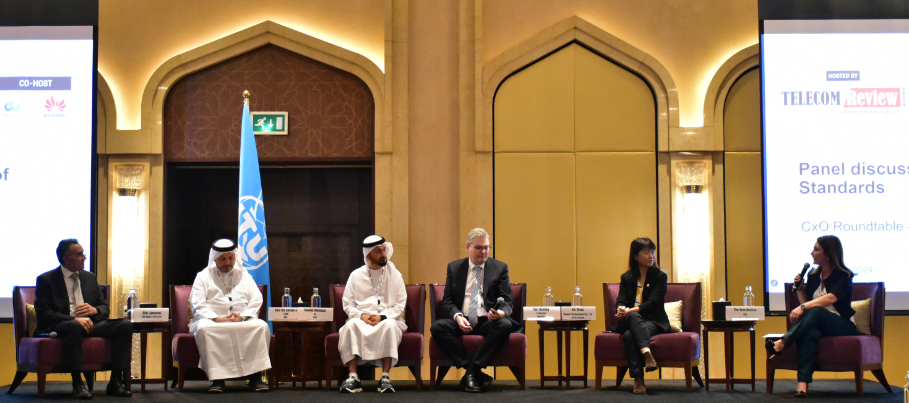
From a regulator’s perspective, Bin Ghelaita said that adhering to global standards and advocating for telecom standardization, especially concerning spectrum allocation, are major factors for organizing the global implementation of telecom services. He said that the Quality of Service (QoS) helps in measuring the relevance of service. He also stressed the importance of interoperability.
Bin Ghelaita noted that customers want standardized solutions and that it is very important to engage within a common global ecosystem. “Standardization helps in the overall innovation, improving the competition of market with standardized solutions, making it more affordable,” Bin Ghelaita reasoned. He also pointed out that the integration of emerging technologies encourages research and development (R&D).
Operator Perspective
Commenting from an operator’s perspective, Alblooshi said that the telecom industry has succeeded due to standardization bodies. He noted that standardization helps telecom operators compete with multiple players, which is good for innovation. He also said that the right standardization would help avoid vendor lock-in scenarios.
He recognized the importance of the ITU and 3GPP in driving digital transformation within the industry. He encouraged partners to push for standardization and consider issues related to cybersecurity and business continuation. He also said that du is collaborating alongside TDRA to establish a 6G roadmap, reiterating that standardization is key and advocating for active participation.
Alblooshi emphasized the importance of technology standards and urged the transition from closed ecosystems to open interfaces, promoting greater interoperability. Regarding priority topics for standardization, Alblooshi opined that an Open RAN model simplifies complexity and helps add value, features, and new capabilities for technologies such as 5G-Advanced. “We are in a strong position to lead 5G and the early adoption of 6G, the integration of AI, and automation,” said Alblooshi.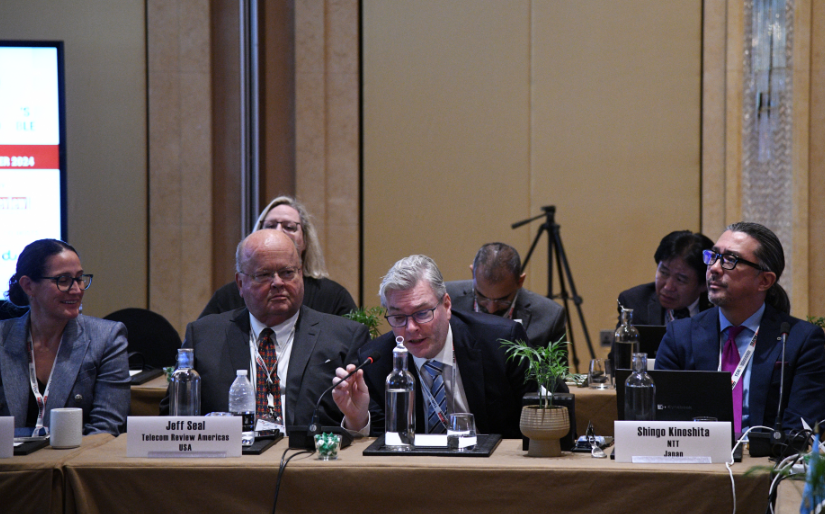
Vendor Perspective
From a vendor’s perspective, Beming emphasized the need for the industry to collaborate on developing the ecosystem, defining the right set of products, ensuring high-level interoperability, and accelerating equipment development for global impact. He stated, “International standards are fundamental for our products.”
Beming pointed out that 90% of research for solutions is not utilized due to incompatible standards. He explained that the right interfaces will benefit multi-vendor ecosystems because the market will be very cognizant of inconsistencies. In terms of priority, Beming stressed the importance of API standardization, leveraging AI, 6G, AI governance, and the interplay of open-source community standards.
He advocated for collaboration between the ITU, Linux foundation, government, developers, and customer support. Beming also highlighted the need for standardization tests and encouraged engagement with universities to make international standards more popular.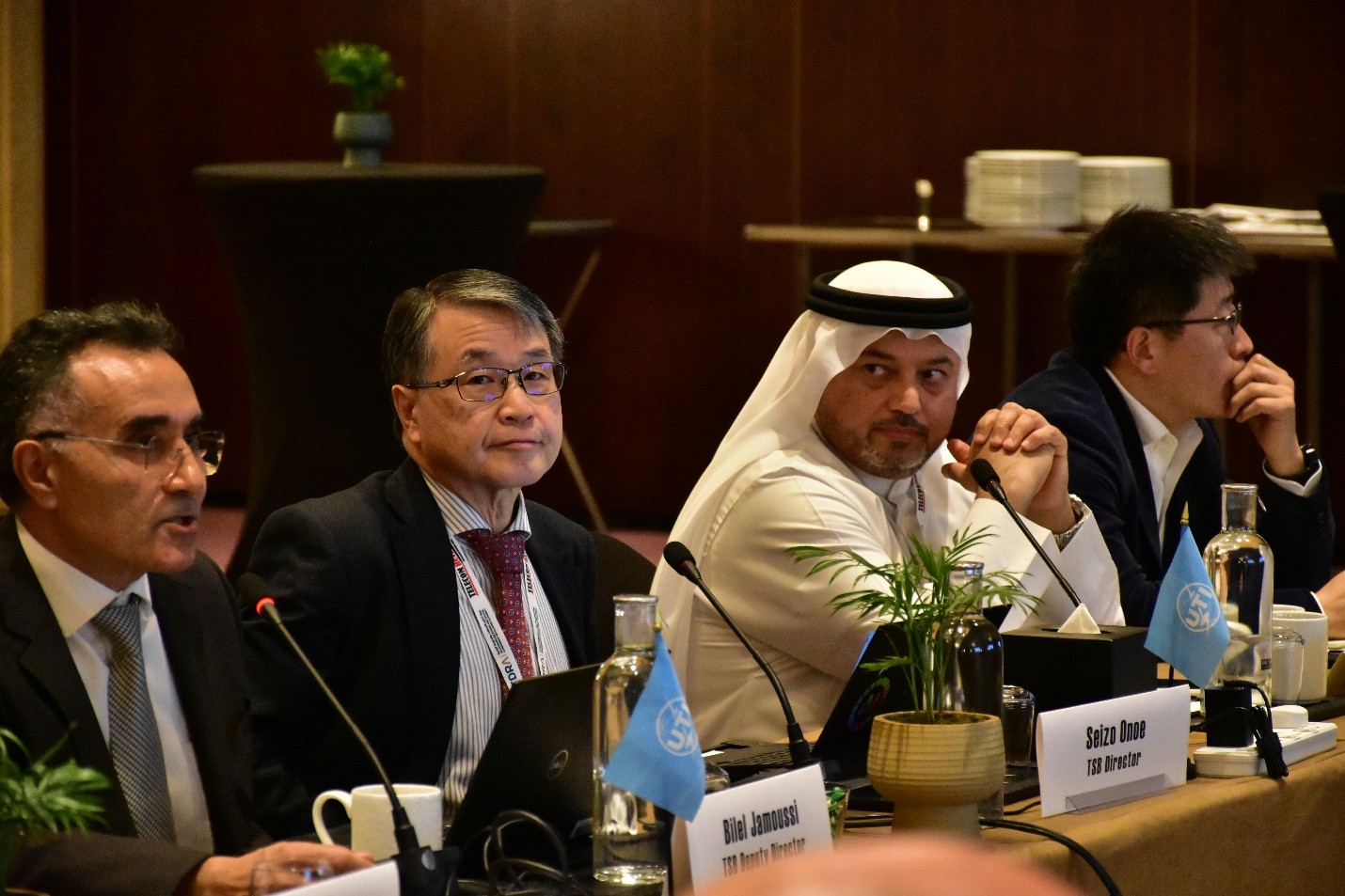
International Standardization for Innovation
Meanwhile, Xin Chang recognized the many members of the ITU submitting solutions related to sectors such as the metaverse or public infrastructure. She underscored the importance of international standardization to develop products that are more green, more intelligent, and more digitalized to improve products through better technology and production. Chang said that contribution from the vendor community will improve innovation and that it cannot be done without the right standardization. “A unified standardization policy will help vendors and operators,” Chang reiterated.
Dr. Jamoussi presented a brief overview of the outcomes of ITU World Telecommunication Standardization Assembly (WTSA-24), held in New Delhi, India, from 15-24 October, 2024; the governing conference for ITU standardization sector that provided a first-hand perspective of the ITU industry for regulators and other industry stakeholders. He explained that the latest ITU initiatives are revolving around AI governance, sustainable digital transformation, new technology policies, market demands, emergency responses, and female participation in ICT.
A brief Q&A between the attending CxOs and the panelists concluded the discussion.
ITU-T Group Consideration
CxOs from the following companies submitted their presentations to the ITU-T Group for consideration:
- NTT – Towards Sustainable ICT Infrastructure Fostering Future AI Systems
- Huawei – Insights into Optical Networks Towards 2030 for the AI Age
- CAS Quantum Network – Brief Introduction to Quantum Communication
- Rhode & Schwarz – QoS from Space: Potential QoS Assessment of Satellite Networks
- LoRaWAN – NTN for IoT
- Sateliot – Seamless Affordable 5G IoT
- GuardianSafetyNet – Saving Lives: A Modern Public Safety Network
- Nokia – AI in Networks
- Turkcell – AI for Networks and Networks for AI
- du – Arabic-First Telecom ChatGPT for MENA Region
- ABHandshake – Real-Time Call Validation Framework
- Somos – International Do Not Originate for Fraud Mitigation
- Shanghai Data Exchange - The Overview of China Data Factor Market construction
Read the final ITU communique here
Related articles:
Telecom Review Successfully Hosts High-level ITU CxO Roundtable for 2023
Telecom Review Group CEO Toni Eid Honored by ITU at the CXO Meeting




